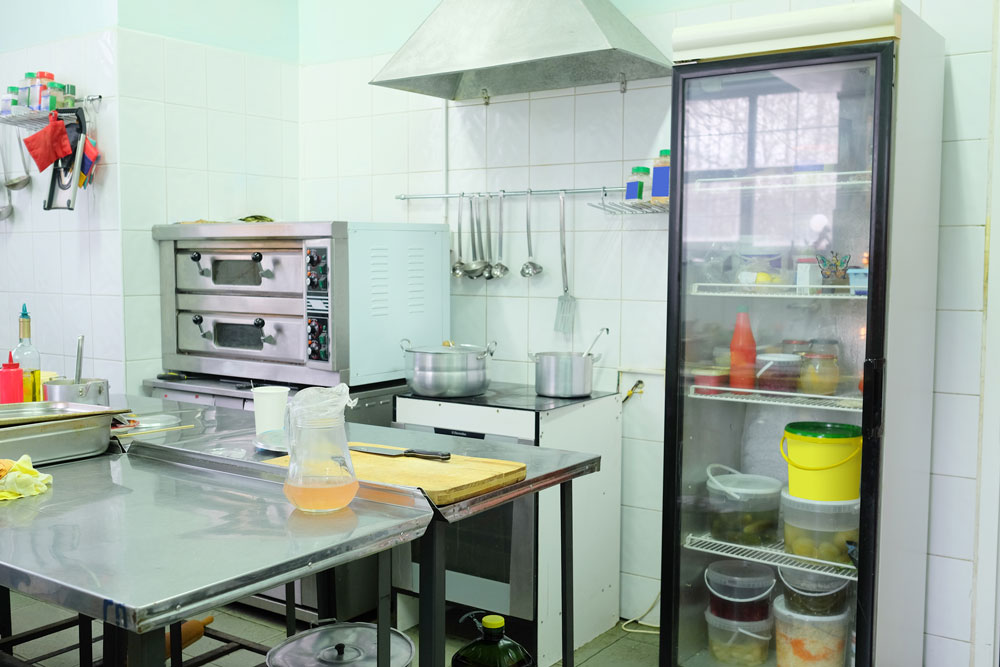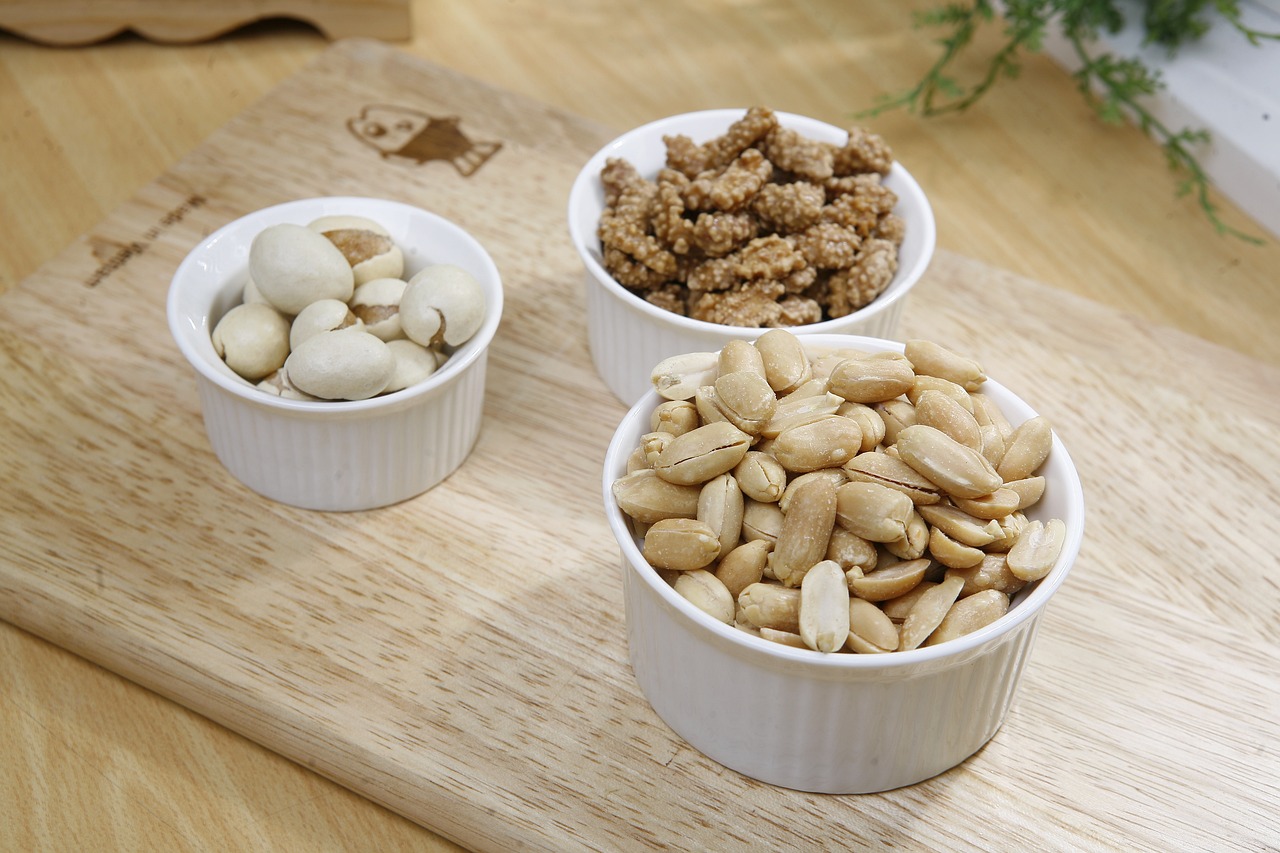Safe and Secure Food Handling at the Elderly Home: the risks of cheating with food storage
This article is written based on Swedish conditions. Hopefully, it can inspire those interested from other countries.
Food and nutrition are an important part of the quality of care in a nursing home. Good knowledge of food hygiene, nutrition, special diets, and creating a cozy dining situation are essential for the well-being of the residents. Safe food handling requires knowledge and is surrounded by rules. It is important to keep track of the food that is served, so that it does not spoil and cause someone to get sick. There are examples where food has been mishandled and caused people to get sick, there are even those who have died from improperly handled food.
 Foto: Mostphotos
Foto: MostphotosThe Importance of Safe and Secure Food Handling in Elderly Care
Safe and secure food handling is a fundamental part of caring for residents in elderly care homes. It's not just about serving nutritious food, but also about handling the food in a way that ensures its quality and hygiene. Failures in food handling can lead to serious health risks, especially for the elderly who often have weakened immune systems. Cheating with food handling can have serious consequences, both for the residents' health and for the credibility of the care home.
The Risks of Insufficient Food Handling
Increased risk of food poisoning:
Elderly people are often more susceptible to food poisoning as their immune systems are not as strong as those of younger people. If food is not handled correctly, for example, if the cold chain is broken or if the food is not heated adequately, bacteria like salmonella, listeria or campylobacter can spread and cause illness. Therefore, it is important to strictly follow hygiene rules and ensure that food is handled correctly from purchase to serving.
Severe health consequences:
For the elderly, food poisoning can lead to serious health problems such as dehydration, prolonged illness or, in the worst case, death. It is therefore crucial to have strict routines for food handling to minimize risks. Food that is past its best before date, or not stored under the correct temperature conditions, should not be used.
Hygiene Rules and Safety
Proper food storage:
An important step in ensuring safe food handling is to follow the rules for storage. Refrigerated items must be stored at the correct temperature, and fresh produce should be handled according to the hygiene regulations in place. Following the cold chain, i.e., keeping the food cold from purchase to serving, is a crucial part of preventing bacterial growth.
Clean and safe work surfaces:
The kitchen and all surfaces where food is handled must be kept clean and disinfected regularly. Utensils used to handle food should also be thoroughly cleaned between use to avoid cross-contamination. Additionally, it is important that the staff handling the food follow careful hygiene routines, such as using gloves and washing their hands regularly.
The Risks of Cheating with Food Handling
Loss of trust:
Not following the rules for food handling and cheating with food handling can have serious consequences for the reputation of the elderly care home. The trust of the residents and their relatives can quickly disappear if it is revealed that the food is not handled in a safe manner. In the worst case, this can lead to the care home losing its license or being shut down if serious incidents occur.
Health risks and legal consequences:
If food poisoning occurs that can be traced back to failures in food handling, it can lead to legal consequences for the elderly care home. Both staff and management can be held accountable for neglecting their duties to follow food regulations and protect the residents' health.
How We Ensure Safe Food Handling
Staff training:
To ensure safe food handling, it is important that all staff handling food have proper training in food hygiene. This includes understanding the importance of temperature controls, how to avoid cross-contamination, and the basic hygiene requirements that must be followed in the kitchen.
Regular inspections and checks:
By conducting regular inspections of the kitchen environment and the routines around food handling, the management of the elderly care home can ensure that all rules and guidelines are followed. Implementing routine internal checks and documentation can also contribute to ensuring that food is handled in a safe and correct manner every day.
Listening to the feedback of residents and their relatives:
The views of the residents and their relatives about the food are valuable. If someone feels that the food tastes strange or is served in a way that does not feel safe, the staff should take these comments seriously and investigate if something has gone wrong in the handling.
Having safe and secure food handling is a fundamental part of caring for the residents in elderly care homes. By following the rules for food handling and ensuring good hygiene, the risks of food poisoning and other health problems can be minimized. It's important not to cheat with food handling, as this can lead to both health risks and loss of trust. By training the staff, following up routines and listening to feedback from the residents and their relatives, we can ensure a safe food environment for everyone in the elderly care home.
Failures in adherence to food handling routines can have serious effects for the residents, as they are particularly vulnerable. The requirement for self-control may therefore be higher than in some other businesses that serve food. Food handling routines may vary between elderly care homes, depending on the raw materials handled in the business and whether food is prepared from scratch, or if only a kitchen receives ready-made food that is then served in the unit. It is also determined by how many people are served food.
Those who handle and serve food must be aware of the business's food handling routines and that there are instructions for what to do if deviations and deficiencies are noticed. There are a number of basic factors for safe food handling, and some of these are the following:
• Good cleaning routines in the kitchen and areas where food is handled, some businesses choose to color-code cleaning materials, which is usually described in the business's self-control program.
• The staff have good hygiene, with a large emphasis on hand hygiene and work clothes. Special kitchen aprons should be used in the kitchen.
• Good routines for planning purchases and orders, especially important if you have someone who requires a special diet.
• Control of deliveries, hot food should have a surface temperature above +60° and cold food/raw materials under +8°.
• Control of storage temperatures in refrigerators and freezers. The surface temperature of food in refrigerators should be a maximum of +8° (preferably colder), the colder the longer the shelf life, in freezers the surface temperature should not exceed -18°.
• Date control on incoming food and on food in refrigerators, freezers and dry storage.
• Those who prepare food or reheat food should carry out a temperature control and the core temperature should be at least +72°.
• Cooling of food is a sensitive process. It is not uncommon for deficient routines of this moment to be what causes someone to get sick from the food served. If you are going to save food and serve it at a later occasion, safe routines for cooling should be followed.
• The business should have routines for how food is handled if the business is affected by foodborne illness such as the winter vomiting disease. Then there should be a description of how to secure that you don't accidentally serve food that may contain virus infection. An elderly person can die from the winter vomiting disease.
Reflection Questions - Safe Food Handling
Care staff:
• Do you ever have to write deviations when it comes to food handling?
• Where are the risks in your operation?
Manager, nurse, occupational therapist and physiotherapist:
• Are the routines for food handling safe?
• Do you have functioning routines and do you comply with what is described in your self-control program?
Residents and relatives:
• Is there order and cleanliness in the kitchen and dining room?
• Does the food handling feel safe and secure?
Erland Olsson
Specialist nurse
Sofrosyne - better care every day

Aktuellt i media
-
2025-04-14 04:00
08 Förebyggande o lokaler
The art of furnishing a nursing home, a balancing act between homeliness, functionality, and hygiene aspects.
info -
2025-04-10 04:00
04 Bemötande
Waking up in a nursing home - is the morning routine adapted to each individual's needs?
info Bild: Pixabay
Bild: Pixabay -
2025-04-07 04:00
09 Mat och måltid
For the elderly, it is often important to eat many snacks in order to get enough nutrition.
info Bild: Pixabay
Bild: Pixabay -
2025-04-03 04:00
04 Bemötande
What creates safety in elderly care homes - advice and tips on creating a secure environment for the residents
info -
2025-04-01 00:00
10 Aktivitet o funktionsbevarande arbetssätt
Reminiscing, working with memories, is an activity that creates a lot of added value for people with dementia.
info - 2025-03-31 04:00 05 Planering

